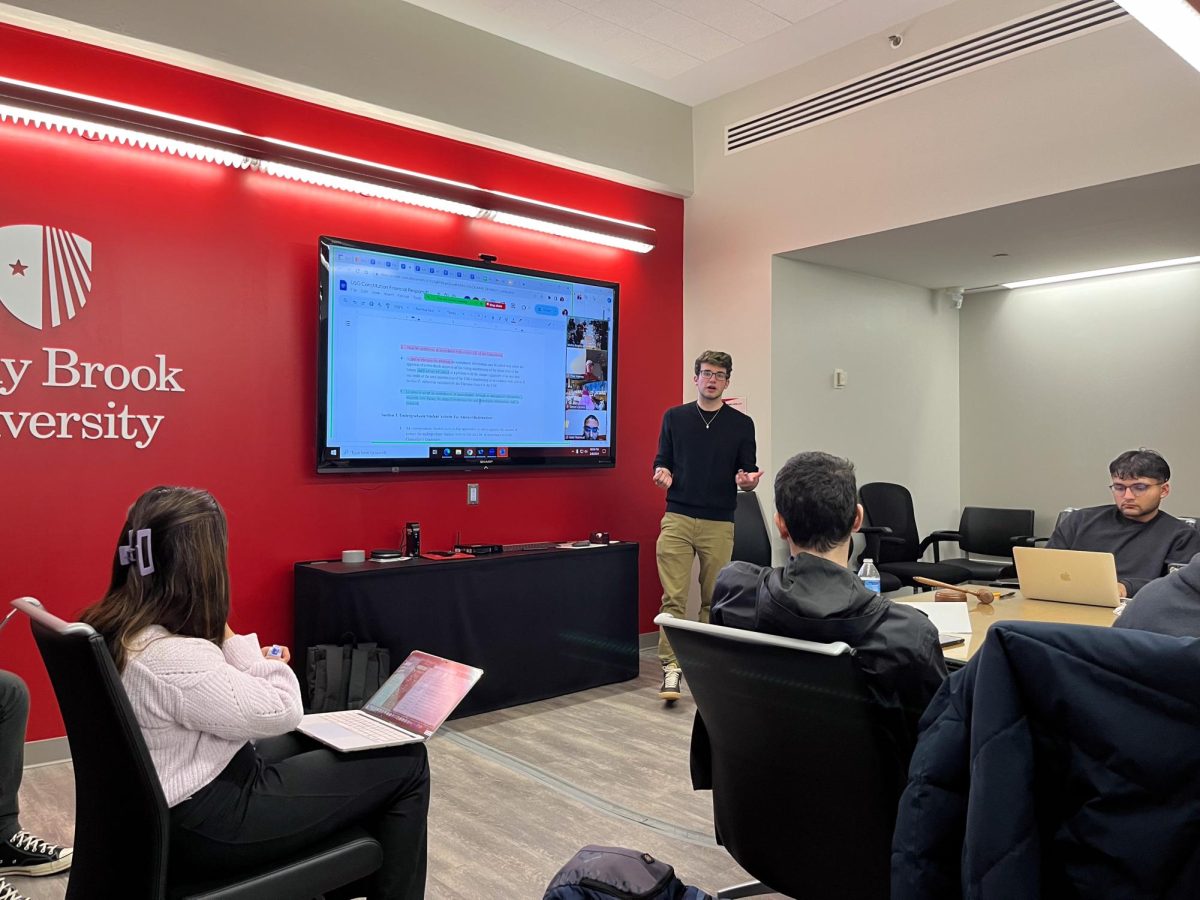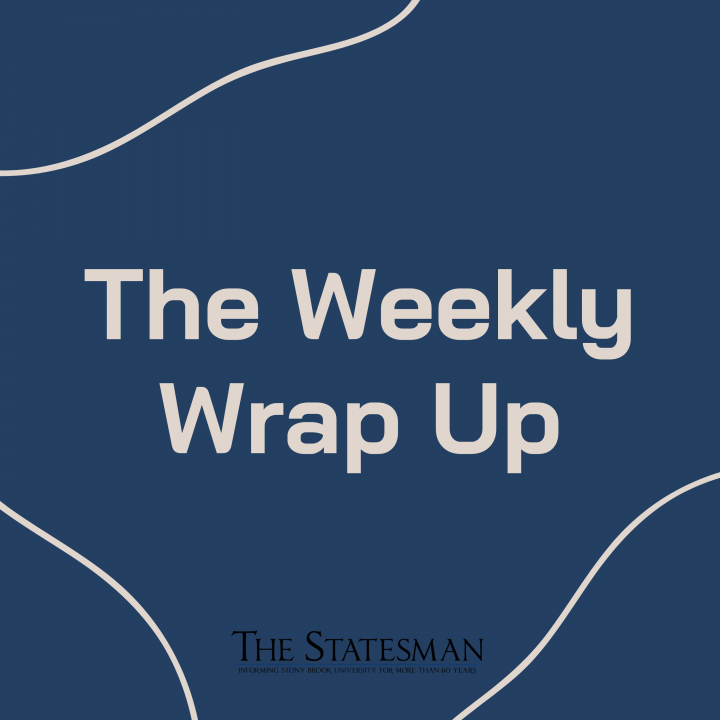
Mohammad Khazaee, the Iranian ambassador to the United Nations, hosted 37 Stony Brook University students at the Iranian Mission to the United Nations on June 28.
The trip, which was organized by professor Jason Rose for his POL 101 class as part of a lesson in international relations, included a lecture on US-Iranian relations and the Middle East, as well as a special treat—a traditional Persian lunch.
Khazaee covered a wide range of topics in his lecture, including the recent Egyptian elections, the Syrian crisis, the Israeli-Palestinian crisis and the economic sanctions placed on Iran. He emphasized that there are two sides to every story. He claimed that an accurate portrayal of the Iranians is something rarely seen in the American media. He was appreciative of the students coming to hear from the Iranians directly, especially during a time in which US-Iranian relations are strained.
Khazaee emphasized the importance of tolerance within Islam. He made it clear that the conservatives – those in favor of the current regime led by Mahmoud Ahmadinejad – in his country have no problem with Judaism, but rather Zionism. Islam sees Jews and Christians as fellow, though imperfect Muslims.
“You are not a Muslim if you do not respect Jesus,” he said. Within the Iranian Parliament, he explained, it is mandatory that Jews and Christians have representation, as they are a significant portion of the population.
He spoke of so-called American misperceptions of Iran caused by what they hear or see in the media. He discussed the problem of Iranian President Mahmoud Ahmadinejad’s metaphors being mistranslated or being taken out of context. Iran and Islam are subsequently miscast as intolerant and associated with terrorism in many American minds, he said. His emphasis on tolerance went a long way to change that in the minds of the SBU students.
Tess Chang, a 20-year-old business finance major minoring in international studies with a concentration on Europe, said, “It was… insightful to visit the Iranian Mission and hear a first-hand account of US-Iran relations… Not only was the class given the full un-censored Iranian viewpoint, but the emotion portrayed in person is a unique intangible to have experienced.”
Khazaee also dispelled the notion that various economic sanctions, imposed by international organizations such as the United Nations and the European Union, are affecting the regime. Khazaee suggested that while the policies have raised domestic prices, they are only affecting the people of Iran, not hurting the regime. They are also certainly not affecting the regime’s stance on nuclear activity.
Rose mentioned that Vahid Karimi, the second counselor at the Iranian Mission to the UN, has discussed with him the differences in opinion between American and Iranian perceptions about the role of government in a society.
“Many Iranian leaders take the position that, since the next world is more important than this one, there is an obligation to guide the citizen spiritually,” Rose learned through these conversations. “Of course, this is a horrifying concept to Western liberals and Americans in particular, where individual economic and political freedom subordinates all other societal concerns… at least theoretically.”
When asked about possible lingering tension and mistrust resulting from the 1953 American overthrow of Iran’s only democratically elected president, Mohammad Mosaddegh, Karimi said “it is the basis for all mistrust” between the two states. Considering America’s recent stance on promoting democracy in the Middle East, this is a powerful statement, one that adds intrigue to the study of Iranian-American relations.
The ambassador became very passionate as tensions arose when he was asked about Israel and a potential two-state solution if Israel was willing to go back to its 1967 borders. Khazaee would not give a yes; however, he didn’t give a no either, suggesting that the Iranian government’s position may be a bit more malleable than is advertised. However, he did say that as a sovereign country, Iran does not have to accept Israel as a legitimate state. Iran is known to support Hezbollah and Hamas, terrorist organizations that are responsible for killing civilians in Israel.
Rose explained that the Iranian government is the subject of debate among scholars. The major question is whether Iran is an authoritarian theocracy with elements of meaningful democracy, or a meaningful democracy with elements of authoritarian theocracy. He noted that “many Western scholars argue the former, while the ambassador makes the case that it is far better than the latter.” This made students curious about how Khazaee would respond when asked about the Arab Spring.
Khazaee expressed a feeling of solidarity and brotherhood with the Egyptian people. He said that a free Egypt “will change the face of the Middle East.” He welcomed the election of President Mohamed Morsi. But he was disappointed that Iran was not invited to Geneva to discuss the Syrian situation due to pressure from the United States. He said that it is Iranian policy not to invade, referring to aggression and support of Syrian rebels. This exemplifies Iran’s efforts to be a peaceful nation, according to Khazaee. The Iranians support Kofi Annan’s efforts to try to negotiate a peace settlement in the country.
The mention of former Secretary General of the UN, Kofi Annan, was particularly meaningful to Prince Karikari, a 27-year-old economics major and a fellow native of Ghana.
“When one of the sons of Ghana, Kofi Annan, became UN Secretary General, we were always blaming him for not bringing projects to our country or using the status he had attained to help the poor in my country. It wasn’t until I visited the UN and read the quote from the first U.N. Secretary General which read ‘The UN was not created to take humanity to Heaven but to save it from Hell,’ that I realized that (if) Kofi Annan and the UN are able to help avert any form of confrontations in Ghana that could lead to a war, they have completed their mission,” Karikari said.
For Chang, the trip to the UN had special meaning. Her grandfather, Kuo-Ho Chang, now 91, is an immigrant from China who worked as an interpreter for the UN, speaking perfect British-accented English when he came to the US following the outbreak of the Chinese Civil War in 1949. Chang says he always says that she has inherited his gift of language, as Chang speaks both English and French fluently.
The ambassador and Professor Rose closed out the meeting by exchanging gifts, including a t-shirt from the Stony Brook baseball team’s recent run to the College World Series that given to Khazaee and a special Persian plate given to Rose.













